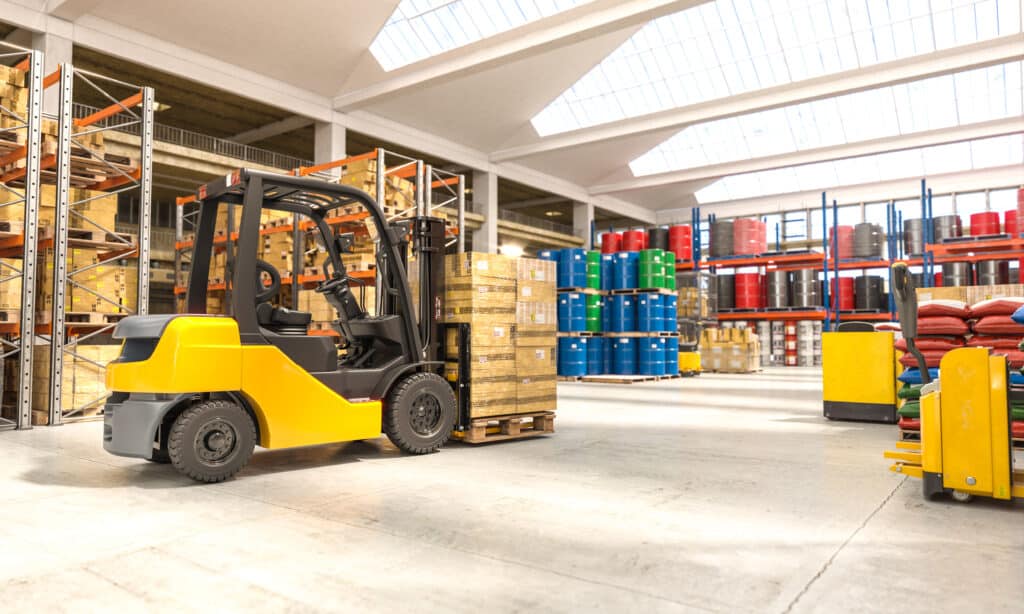
The Q1 2025 BlueGrace Logistics Confidence Index® Is Here.

The November 1977 issue of Harvard Business Review carried an article titled “Logistics – Essential to Strategy”. Citing reasons such as “a decline in the growth rate of domestic markets, large incremental costs of energy, and an increasing emphasis on multinational markets in corporate strategies”, it foretold that logistics will become an essential part of the “corporate strategy of the future”.
There could not have been a more accurate prediction.
Today, logistics has become the game changer for both business and the nation’s economy. For businesses, it forms an essential part of the complete product and customer service offering. By enabling the movement of people and commodities from one place to another, logistics has always played a visible part in building the nation’s economy. Now, it is also a significant contributor to the GDP. In 2017 the transportation sector alone contributed 8.9 percent of the country’s GDP.
Globalization and the ensuing cut-throat competition has made it necessary for organizations to focus on providing customers with an added incentive to buy from them. Customers are no longer easily pleased. While one can sustain in the business for some time by introducing new variants, it is not enough to keep the buyers coming back for more. At times, even a price difference might fail to attract customers. Then what can capture the attention of the customer?
Logistics is the new differentiator.
Now, especially with the increasing popularity of online shopping, customers look for availability of the product at the required time and place followed by quick and timely delivery of their purchases. This demand can only be fulfilled if shippers can get their logistics right. Logistics is the new differentiator.
Customer demand: According to a research conducted by Retail-Week, in response to a question on what they expect in terms of delivery, 70 percent of the customers surveyed said they would like to have more flexible delivery options. Statistics from another survey revealed that 56 percent of online customers in the age group of 18-34 years look for same day delivery options. 61 percent of those surveyed said they are willing to pay an additional price if they can get same-day delivery. These statistics clearly highlight the growing importance of why shippers need to pay attention to their logistics strategy, planning, and execution.
Competition: It is no longer a seller’s market. Very few products or services enjoy a monopoly in the current market scenario. If one store or online shopping portal does not have the product in stock. There are many other options in the market for customers to buy from. So, whether you are an online store or a traditional retailer, if you fail to supply the product at the store when in demand, there’s a huge possibility of losing the customer to the competition. Regular and timely supply can be maintained only if the proper logistics program is in place.
Given the fact that customers are willing to pay for a premium delivery service, it makes business sense to procure and provide this option.
Achieving a balance in cost and service quality: Logistics is a cost. More often than not, shippers think that to remain competitive, one must negotiate and procure the lowest rates available in the market. While it is necessary to negotiate freight rates and keep the go-to-market price of the product in control, it is also equally important to understand how too low a cost can hamper the quality of the service. If shippers have insight into where and when they need to provide premium logistics services and where a regular delivery will suffice, they can hire a mix of vendors or negotiate for different service levels with the same vendor. This will help shippers offer the flexibility and choices in the delivery that the customers seek. Given the fact that customers are willing to pay for a premium delivery service, it makes business sense to procure and provide this option.
Geographical reach: A strong logistics strategy can help you reach wider markets and more customers at the right time. This is especially important if you’re an e-commerce business or a retail chain with branches in different cities. A well-planned logistics system is essential to cater to different geographies and ensure that the product reaches the distribution centers or retail stores in time to fulfill customer orders. If the logistics operation is weak, it becomes difficult and financially unviable to operate a multi-city or an international business.
If shippers do not take the required effort to understand the logistical needs of their business and plan in advance to procure the services they would need, it can have a negative impact on the business.
Logistics is the core of a business. It is what ensures that your product reaches the intended customer cost effectively and on time. This activity often involves multiple handling points and different modes of transportation. If shippers do not take the required effort to understand the logistical needs of their business and plan in advance to procure the services they would need, it can have a negative impact on the business. If you need help in understanding and building a strong transport management system, contact us at 800.MY.SHIPPING or fill out the form below to speak to one of our freight experts today!
Get expert logistics insights delivered straight to your inbox
"*" indicates required fields